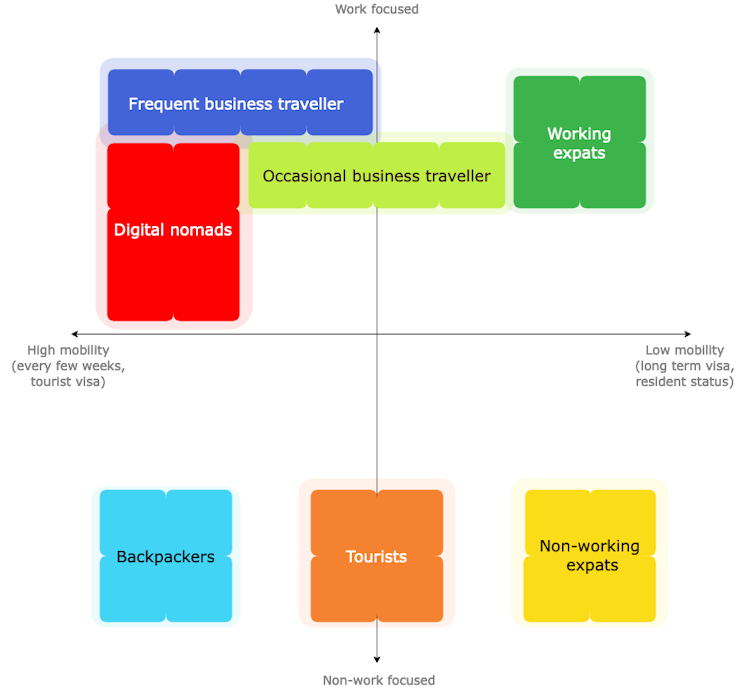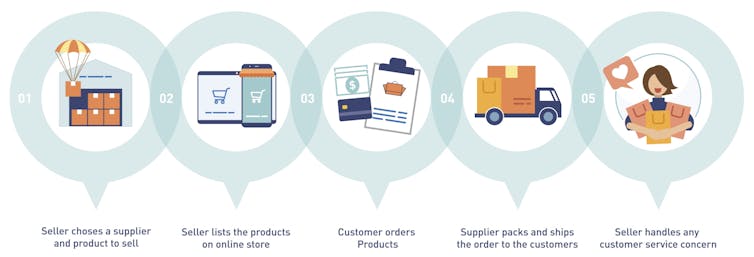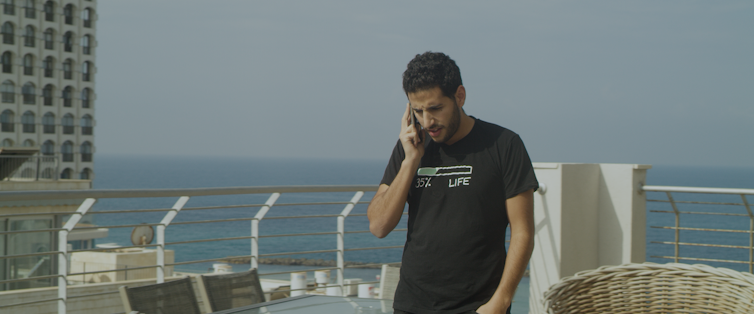[ad_1]
A ‘community state’ is ideologically aligned however geographically decentralised. The persons are unfold around the globe in clusters of various measurement, however their hearts are in a single place.
In June 2022 Balaji Srinivasan, former chief expertise officer of the Coinbase cryptocurrency alternate, printed an e-book entitled The Community State: How To Begin a New Nation. It’s the newest in a flurry of utopian visions by self-styled digital visionaries, crypto believers and internet 3.0 evangelists who’re lining as much as declare the loss of life of the standard idea of nations and nationhood.
In a single case, a brand new “digital” nation is already in improvement. “The nation state is outdated – it’s based mostly on Nineteenth-century pondering, and we purpose to upend all of that,” Lauren Razavi tells me over Zoom from a bustling co-working house.
Razavi is the chief director of Plumia, a self-proclaimed “moonshot mission” to construct an web nation for digital nomads. Born in Britain to an Iranian immigrant, Razavi sees herself as untethered and borderless, and likens nationwide citizenship and tax to a “subscription” that may be very onerous to cancel.
“We’re all enrolled into this automated subscription based mostly on the coincidence of our birthplace or our heritage, and that actually doesn’t work within the twenty first century.”
You’ll be able to hearken to extra articles from The Dialog, narrated by Noa, right here.

{Photograph}: Barbara Jovanovic, Writer offered
Freedom for everybody?
As an anthropologist, I’ve been chronicling the digital nomad way of life – and their tangled relationship with state establishments – for the previous seven years. Pre-pandemic, the in style stereotype was of a carefree millennial who had escaped the every day grind to journey the world with out hindrance, engaged on a laptop computer in some far-flung seashore cafe with their solely limitation being the standard of the wifi.
As way back as 2015, I used to be listening to recurring complaints from these nomads in regards to the ideological and sensible frictions that nation states pose – it simply hadn’t organised itself right into a motion but.
For some time, COVID-19 appeared to place the brakes on the nomadic dream, as most had been pressured to go house to western nations and the security web of healthcare methods. But now, the distant working revolution triggered by the pandemic has given this borderless way of life “mission” a new impetus.

This story is a part of Dialog Insights
The Insights staff generates long-form journalism and is working with teachers from completely different backgrounds who’ve been engaged in tasks to deal with societal and scientific challenges.
Earlier than COVID struck, 12% of employees within the US labored remotely full time, and 5% within the UK. However the pandemic shortly proved distant work was doable for a lot of extra individuals. Office norms toppled like dominos: the workplace, in-person conferences and the every day commute fell first. Nations reminiscent of Barbados, Estonia and Portugal began issuing distant work visas to encourage geographically versatile staff to relocate to their territories. “Zoom cities” are one other pattern, with cities reminiscent of Augusta, Maine within the US providing monetary sweeteners to draw distant employees.
Learn extra:
Distant-work visas will form the way forward for work, journey and citizenship
Having consigned the workplace to the trash, it is sensible that the nation state is the subsequent establishment that digital nomads wish to recycle. To Razavi, membership of a nation state “gives extremely poor worth … The elements which are actually caught up to now embody citizenship, passports and tax. Our imaginative and prescient is to add the nation state to the cloud.”
The idea of creating an web nation was dreamt up throughout an organization hackathon. Plumia is owned and staffed by Security Wing, an HQ-less insurance coverage firm which sells journey and well being cowl to digital nomads and distant working groups (tagline: “Insurance coverage for nomads by nomads”). Security Wing, in accordance with its homepage, is “right here to take away the position of geographical borders as a barrier to equal alternatives and freedom for everybody”.
However the realities of life as a digital nomad, and the dream of shedding your nationality for a borderless, paperless model, are filled with day-to-day problems, as I’ve found – notably if you don’t belong to the younger, white and western stereotype that the media tends to perpetuate.
Turning into a digital nomad
I first heard about digital nomads in 2015 whereas chatting to Thom*, a seasoned traveller in Koh Phangan. Thom was neither expat nor vacationer, and barely appeared to return house. I requested him how individuals survived whereas consistently travelling. He had a laundry listing of issues, from hassles subletting his condominium in Hamburg to his financial institution stalking him for a everlasting tackle, and the hell of navigating visa guidelines.
Later within the dialog, he paused and declared, “You’re speaking about digital nomads – I can’t imagine you’ve by no means heard of them!” Laughing, he defined, “It’s somebody a bit like me however who thinks the underside layer of Maslow’s hierarchy of wants is quick wifi as an alternative of shelter. There’s a digital nomad convention occurring in Bangkok in just a few months. Let’s go.”
How digital nomads see themselves:

Diagram: Dave Prepare dinner and Tony Simonovsky, Writer offered
Two months later, I used to be strolling up Rangnam Highway in Bangkok on a damp morning, searching for the DNX convention. Simply off the airplane and combating jetlag, I visited a espresso store and overheard two German males discussing the convention. Fabian, who was wearing camo cargo shorts and a black T-shirt, informed me he was giving the keynote speech. He deliberate to share his experiences of driving throughout Africa taking part in guitar for charity, and of organising a borderless tech start-up whereas travelling via South America.
On the convention venue I discovered crowds of individuals checking-in utilizing Eventbrite apps. Lanyards with the slogan “I CHOOSE FREEDOM” had been handed out. At this stage, I didn’t query what sort of freedom.
Most attendees had been casually dressed males from the worldwide north of their 20s and 30s. Though most carried small backpacks, nobody regarded like a backpacker. The boys had been in shorts and navy or khaki polo shirts. The few ladies current wore impartial sundresses. Nobody would have regarded misplaced in a enterprise assembly in a global lodge foyer.

Dave Prepare dinner, Writer offered
Digital nomads vigorously differentiate themselves from vacationers and backpackers. One nomad informed me, “I’d be bored shitless if I hung round on the seashore all day getting stoned.” Nonetheless, these two tribes usually collide in places like Ko Pha Ngan or Chiang Mai in Thailand.
Talks on the convention usually repeated the phrase “freedom”. Freedom to reside and work anyplace, freedom from the rat race, entrepreneurial freedom, freedom to take management of your life and future. Different well-worn themes included “life hacks” enabling nomadic companies to perform effectively on the transfer, the position of co-working areas, and inspirational travelogues.
Within the convention introduction by DNX founders Marcus Meurer and Feli Hargarten (additionally identified, respectively, as Sonic Blue and Yara Pleasure), a YouTube video entitled The Rise of Lowsumerism was performed. The video claimed that extreme consumerism was being changed by a superior sharing financial system which “prioritises entry over possession”. That is what Razavi now calls subscription residing.
Regardless of the video’s critique of “senseless consumerism”, it used a visible model that might have been promoting luxurious flats. All of it sounded enjoyable and costly. The video ended with the phrase: “Earth just isn’t an enormous purchasing centre.” The convention was hosted in a mall.
Some talks bought into the gritty trivialities of worldwide residing in stunning element. Natalie Sissons, whose private model is The Suitcase Entrepreneur, used her presenting slot to share her digital productiveness methods, projecting her yearly schedule on the huge convention display screen. She defined how her digital calendar app, Calendly, mechanically translated timezones, flattening nationwide time variations into international, bookable and productive assembly slots and tasks. She was additionally a frisbee champion and liked doing handstands.
Then got here Fabian Dittrich’s keynote. He was billed as a travelling tech entrepreneur, walked on stage nonetheless wearing shorts and a T-shirt, and was honest and intense. He recounted how his college careers adviser informed him he wanted to “slot in like an adjusted citizen” – however that he “rejected the system and a well-paid job in London [because] it was a workstyle, not a way of life”. He linked this dissatisfaction with workplace life to his rejection of his nationwide id.
Each Dittrich and Sissons gave the impression to be residing incarnations of the life-style extolled by Tim Ferriss in his seminal 2004 self-help e book, The 4-Hour Work Week. Their logic pathologised the workplace and the nation state – each had been solid as threats to untethered freedom.
Within the closing part of the convention, Dittrich turned his anger instantly on the nation state. He clicked to a PowerPoint slide 25-feet broad which parodied the Ascent of Man. His visible depicted human evolution from an ape to a digitally liberated human withdrawing, presenting digital nomadism as a future trajectory for humanity.

Dave Prepare dinner, Writer offered
His subsequent slide confirmed two globes: the primary lined with nationwide flags headed “What individuals suppose I’m”; the second with out flags titled “What I actually am”. Dittrich defined that his private id had nothing to do together with his nationality. His efficiency made me consider Diogenes’s proclamation: “I’m a citizen of the world.” The viewers erupted into applause.
After the primary convention, there have been after-parties and workshops. I discovered that many delegates had been new to the nomad scene. Everybody wished the key components of a blissful life combining work and international journey.
When it was over, in my creativeness, all of the delegates jetted off to their tropical hammocks. I trudged again to the UK winter, my day job, and to my mom’s hospital mattress which I had left 4 days earlier. I discovered her in the identical mattress, recovering from most cancers surgical procedure which had saved her life, offered by the UK’s Nationwide Well being Service.
Being a nomad might be taxing
It’s apt that the prototype digital state of Plumia is owned by a journey insurance coverage firm. Each digital nomads and sceptics of this way of life agree that challenges to sustaining a nomadic existence are 90% sensible. Visa guidelines, tax obligations and healthcare are frequent nomad ache factors.
Healthcare is the plain first hurdle. Nomads want insurance coverage that covers them for issues like scooter accidents and patches them up on the street, to allow them to make it again to a co-working house or their subsequent vacation spot. Traditionally, most traditional journey insurance coverage covers a most of 30 days, so for Security Wing, longer-term healthcare and journey insurance coverage for nomads is a spot available in the market.

Shutterstock
Tax planning doesn’t make for horny weblog posts – but it surely did train me rather a lot in regards to the struggles of turning into a digital nomad, and what it actually means to be the member of a nation state. I met Ben in a Thai co-working house. He was fresh-faced and idealistic, but additionally pressured and strapped for money.
Ben had left the UK as a backpacker, staying in Australia underneath the working vacation visa programme the place he labored on a sheep farm within the outback. Tired of nothing to do within the evenings, he stumbled throughout a digital nomad weblog promising a lifetime of journey, work and freedom. When Ben left the farm to backpack with associates, his thoughts saved returning to that weblog which mentioned “earn cash while travelling the world”. He informed me:
All my associates wished to do was get drunk within the subsequent hostel. They knew they’d run out of cash and need to go house. I realised I might proceed travelling while working, as an alternative of going house broke and having to search for a job.
Ben headed to a co-working house in Thailand and taught himself web site design. However the Australian authorities was pursuing him for unpaid taxes as a result of he had overstayed his visa whereas working. Sadly, one tax woe led to a different.
Confronted with the dilemma of paying the Australian authorities or risking not having the ability to go to his girlfriend in Sydney, he used his new design abilities to earn some cash. He had befriended the house owners of a Thai guesthouse and informed them he might create an affordable web site for them. The house owners “had been delighted”, however the supervisor of the Thai co-working house discovered and informed Ben it was unlawful for somebody on a vacationer visa to work instantly with Thai purchasers. If the co-working house was discovered to be internet hosting unlawful employees, they could possibly be prosecuted and shut down.
To turn into efficiently “free”, digital nomads should turn into consultants in retaining forward of state bureaucracies. Most study the onerous manner after they run into bother. Earlier than the pandemic, Thailand appeared like the right digital nomad location resulting from its Instagram-worthy seashores, quick web and low price of residing. Think about Ferriss’s 4-Hour Work Week merged with Alex Garland’s The Seashore, solely with a special ending.
But visa guidelines and employee protections in Thailand are strict, if not at all times rigorously enforced. Round 2018, the Thai state grew to become acutely conscious and suspicious of digital nomads. In reply to the query “can digital nomads work in Thailand with out a work allow?”, a Thai authorized web site acknowledged: “In an effort to work within the kingdom, a foreigner must: be on an acceptable visa, get hold of a piece allow, and pay taxes.” The web site went on to query the very that means of labor:
What is figure? A digital nomad engaged on his laptop computer in a co-working house, is that thought-about work? A businessman sitting in his lodge room making ready for a seminar? When does the Work Allow workplace contemplate this to be work? It is a onerous query to reply with an easy sure or no.
For Ben and different fledgling digital nomads, tax and office protections had been the rug-pull that precipitated their digital nomad dream to topple. Many nomads quit at this stage. For others, nonetheless, the digital nomad dream can turn into a recurring nightmare.
The roots of digital nomadism
One key part of digital nomadism is the idea of “geoarbitrage”, which is a elaborate time period for wielding a western wage in a lower-cost, creating nation. Some people discover the concept unethical however for entrepreneurs having to attend tables whereas bootstrapping a enterprise, it is sensible to reside someplace cheaper than the Valley, London or New York.
Geoarbitrage was popularised by Ferriss in his e book and to some, the e book summarised all the things that was proper with globalisation: the concept that your complete world ought to function as an open, free market. To others, it pointed to a nightmare.
Within the wake of Ferriss’s e book and likewise Digital Nomad by Japanese technologist Tsugio Makimoto – who’s extensively credited with coining the time period – digital nomads gravitated to tropical places with decrease residing prices. Thailand and Bali had been early hotspots however digital nomads aren’t sentimental. If a greater place gives the best mixture of welcoming visas and low residing prices, or catches the eye for another motive – as El Salvador did in 2021 by turning into the primary nation to classify Bitcoin authorized foreign money – digital nomads are more likely to seem, with carry-on baggage.
To outlive as a nomad requires ability, tenacity and the privilege of holding a “robust” passport, a degree that Razavi has highlighted on Plumia’s Twitter feed:
A passport is not a bodily doc however a set of rights and inequalities programmed into a pc. To me, which means that is the second the place this has to vary. In a world of distant work, this is unnecessary in any respect.
Vacationer visas are sometimes brief, so nomads travelling on them want to vary location frequently, typically as often as each two weeks. Some do visa runs to the closest border (to increase their visas) or depart and apply for longer-term customer visas. However this implies further journey and disrupts work routines. Established nomads usually clarify how they’ve realized from previous errors. As they turn into extra street savvy, they decelerate their journey patterns, refine their tax and visa preparations, and ensure they aren’t worrying about breaking native immigration legal guidelines.
Juggling work and journey is each a dream and a headache. A excessive proportion of nomads I’ve met abruptly disappear from the scene, and their social media posts about nomading stop. But that doesn’t cease the following era of dreamers turning up in Bali and Chiang Mai. And no dream, maybe, was extra alluring than the observe of “dropshipping”. It’s additionally vastly controversial – even in nomad circles.
The darker aspect of digital nomadism
Between 2016 and 2018, “dropshipping” was the preferred get-rich-quick scheme I got here throughout in Chiang Mai. This on-line enterprise mannequin entails individuals advertising and marketing and promoting merchandise they might by no means have seen, produced in nations they might by no means go to, to clients they may by no means meet. The merchandise are sometimes area of interest gadgets reminiscent of kitchen devices or pet equipment.
Sometimes, dropshippers promote their merchandise on social media and promote them by way of Amazon, eBay, or by creating their very own on-line shops utilizing software program reminiscent of Shopify. Dropshipping is catnip to aspiring digital nomads as a result of it’s borderless and gives the promise of “passive earnings”. As one nomad defined to me, “why wouldn’t you wish to earn cash when you sleep?”
However many dedicated digital nomads hate this darker aspect of digital nomadism. Each Razavi and Pieter Ranges, creator of the web site nomadlist.com, have declared that dropshipping is “bullshit”. One other British expat described it as “the snake oil that greased the wheels of a thousand start-ups in Chiang Mai”.

Shutterstock
Younger nomads usually confided to me that they had been perfecting their dropshipping enterprise mannequin. Some confirmed me spreadsheets displaying greater than US$5,000 a month of passive earnings. However I additionally realized extra in regards to the emotional and financial prices.
At one unofficial dropshipper meet-up in Chiang Mai in 2018, I used to be informed that if you happen to wished to be actually profitable, you needed to turn into knowledgeable at manipulating massive e-commerce platforms reminiscent of Amazon and eBay. Some talked about making an attempt to evade native well being and security legal guidelines when promoting area of interest merchandise like kitchen devices whereas tapping right into a pool of worldwide low-cost labour.
Competing with different sellers who troll you with dangerous evaluations was a darkish artwork, I found. Two males confided that their Amazon vendor accounts had been suspended after being accused of posting suspicious evaluations. A number of admitted they’d bought associates to review-bomb their rivals.
These dropshippers feared Amazon’s algorithms greater than border and customs inspections. Manipulating its evaluation system was notably difficult as a result of, in accordance with Larry, an ex-marine who manufactured his personal “prime secret” product in China (dropshippers hardly ever share what their area of interest merchandise are), “Amazon processes and algorithms appear to know all the things.”
“They know in case your cousin provides your product a five-star evaluation,” Ted added. Everybody nodded vigorously.

Shutterstock
Each dropshipper promoting on Amazon.com (its US area) complained about Proposition 65, an inventory of poisonous chemical substances regulated in California which are extensively utilized in Chinese language plastic manufacturing. Some had whole product classes (their entire “vendor itemizing”) deleted in California. These battles with native legal guidelines and tech giants present how the strains between nation states and companies can turn into blurry for digital nomads. Or as Ted put it: “Fuck the west coast. You’re caught between well being and security and the tech giants.”
Amazon may be very clear about its dropshipping coverage: “We don’t permit a 3rd celebration to fulfil orders from different retailers on a vendor’s behalf, until the Amazon vendor of document is clearly recognized on the packaging,” a spokesperson informed me. “Our insurance policies additionally prohibit evaluations abuse.”
Pete, a dropshipping veteran utilizing a number of platforms, informed the Chiang Mai meet-up that he had greater than US$10,000 value of inventory “at sea or in transit” and had constructed his personal e-commerce retailer. He additionally hinted that he would flip a blind eye to the potential for youngster labour. “I’m getting extra concerned with the manufacturing,” he half-whispered to the room. “I despatched an agent to test how issues had been going, and I heard that children had been packing the orders.” One other dropshipper chipped in: “Effectively, it’s China … what are you able to do?” Half the room shrugged.
Some dropshippers bragged to me about hacking into the worldwide pool of low-cost, educated digital assistants (VAs) – usually from the Philippines the place English is extensively spoken. Zena, who offered house decor to a “design-savvy clientele again within the US”, defined how “Instagram was her killer gross sales funnel”, however that she quickly realised “I used to be killing myself between the order fulfilments and socials [social media posts]”.
So Zena discovered a VA residing on the outskirts of Manila and outsourced all the things to her. “[It took] a month to get her absolutely on top of things – she has an MBA, her English is nice. The time funding was completely value it; I get all the things accomplished higher than I might do it myself.”
Zena wouldn’t reveal how a lot she paid her VA, in case somebody tried to poach her. Two male dropshippers chipped in. “All of them have MBAs, bro,” one laughed. The opposite added, “Some settle for lower than [US]$500 a month. I’ve heard as little as $250, however that’s too low even for me.”
Learn extra:
As nations starting from Indonesia to Mexico purpose to draw digital nomads, locals say ‘not so quick’
Ranges says dropshipping is a “terribly darkish story”, mentioning that aspiring dropshippers might be victims too. He claimed on Twitter: “What’s dire about dropshipping is that these individuals from poor areas within the US pay hundreds of {dollars} for programs that don’t ship.”
Contemporary-faced nomads usually informed me they had been excited to start out on-line programs, however others informed me the content material didn’t train them a lot. Whereas it’s debatable whether or not these programs had been deliberate scams, many younger nomads had been disillusioned to find that dropshipping was a really tough solution to earn cash.
For a lot of, it grew to become a quick fever dream earlier than they moved on to extra moral or sustainable methods of incomes whereas they travelled. The dropshipping scene in Chiang Mai began to dwindle earlier than the pandemic hit. On the similar time, as one nomad informed me in 2020, “cryptocurrency has stolen the limelight.”
‘A lonely, depressing existence’
The digital nomad on the seashore may need turn into a cliche, however what’s to not like about residing and dealing in paradise? Quite a bit in accordance with Andrew Eager, creator of The Web Is Not The Reply. Eager is crucial and dismissive of the digital nomad way of life – and when Razavi interviewed him for a Plumia livestream occasion, the dialog, in Razavi’s phrases, “bought salty”.
When Razavi requested Eager about digital nomads and his “views on international mobility”, Eager replied:
I’m not in favour of tearing up your passport and being ‘anyplace’ … I’m fairly crucial of this new precariat, the brand new workforce current on so-called sharing platforms like Uber and Lyft to make a residing … I’m unsure most individuals wish to be nomads. I feel it’s a quite ugly, depressing, lonely existence. The issue is that expertise is pushing us in that manner.
Behind the inspirational blogs and inventory pictures of hammocks, digital nomadism divides choices, usually angrily. Razavi believes mobility is a human proper, whereas Eager believes politics wants locations. This performs out in nationwide politics, too. On the 2016 Conservative Occasion convention within the UK, the brand new prime minister, Theresa Could, famously declared: “In case you are a citizen of the world, you’re a citizen of nowhere.” It was a battlecry inviting individuals to take sides.
In March 2020, COVID and its related international lockdowns briefly appeared to problem the concept of freely current “past nations”. But now that distant working has been normalised, the digital nomad dream has been supercharged – and each week, a new nation or metropolis appears to launch a distant work or digital nomad visa scheme.
Based on Razavi, Plumia “are speaking to a variety of nations however that’s confidential … We’re talking to rising economies.” She does title the federal government of Montenegro, nonetheless: “That one’s fairly public as a result of it’s on social media. I see there being alternative there.”
Estonia was the primary nation to pioneer a digital nomad visa. Having solely gained independence in 1991, it has positioned itself as a digital society the place 99% of presidency companies might be accessed on-line. Based on Estonian entrepreneur Karoli Hindricks, founding father of Jobbatical, a job-finding service for distant employees: “The place you had been born is sort of a statistical error.”
The thought of making a brand new nation by hacking and reassembling previous concepts is nothing new, in fact. The Principality of Sealand, positioned on a concrete platform within the North Sea, tried to declare sovereignty in 1967 with blended success. Some digital nomads obsessively analysis maritime regulation, others go on digital nomads cruises. One nomad confided to me that they wished to purchase an island in Brazil.
And whereas the concept of an web nation with none territory, or future plans to assert any, is a radical idea for many, historical past teaches us that concepts, given the best tailwinds, can morph into actuality.

Alamy
In 1996, for instance, John Perry Barlow printed A Declaration of the Independence of Our on-line world, during which he wrote the next missive to “outdated” governments:
Governments of the Industrial World, you weary giants of flesh and metal, I come from Our on-line world, the brand new house of Thoughts. On behalf of the longer term, I ask you of the previous to go away us alone. You aren’t welcome amongst us. You don’t have any sovereignty the place we collect.
Inside 4 years the dotcom bubble grew exponentially after which burst – proving each its evangelists and critics proper.
A brand new faith?
I mentioned the place digital nomadism could also be going with the documentary movie director Lena Leonhardt, who like me has spent years chronicling the digital nomad way of life. Her movie Roamers – Observe Your Likes tells 4 astonishing tales of nomads combining journey, work and chronicling their adventures on social media.
The movie’s primary character is Nuseir Yassin – or Nas Day by day as he’s identified to his followers, as a result of he made a one-minute movie on a regular basis for 1,000 days whereas travelling. Firstly of the film he’s seen on a stage, urging his viewers to not waste their lives: “I labored as a software program engineer for PayPal however I hated my job and I hated my life.”
Yassin wears a T-shirt with an infographic displaying his life as 33% used-up. “I had this revelation,” he explains. “I’m one-third lifeless with my life.” The remainder of the movie paperwork how he and different nomads turned their unusual lives into one thing “fricking unbelievable”.
Leonhardt thinks the digital nomad way of life could have non secular or spiritual qualities: “Many individuals really feel ‘I solely have this life and a really brief time, so I’ve to verify this life is value one thing’.”

{Photograph}: Lena Leonhardt, The Royal Movie Firm
But there’s little question the digital nomad way of life is far tougher if you happen to don’t journey with a “robust” passport that permits visa-free journey. In case you are an African girl, for instance, nomadic journey might be tough and hostile.
Agnes Nyamwange, who additionally options within the movie, has a Kenyan passport. Earlier than the pandemic, she was based mostly within the US and “nomaded” in South America from there. Nyamwange defined that holding a Kenyan passport made visas costlier, as visa-free journey is far much less out there to holders of many African passports.
For the reason that pandemic, travelling to the US or Europe has turn into virtually unimaginable for her. “I wished to go to Europe after they opened up, however the embassies right here mentioned it was closed for Africans. Lately I simply had the US Embassy telling me they don’t have any appointments out there till 2024.”
Within the movie, Nyamwange memorably proclaims: “We’re a era of people that imagine in superheroes.” She talks in regards to the therapeutic energy of journey. However once I caught up along with her earlier this 12 months, she revealed the underbelly of nomadism to me:
It’s a cultish kind factor. It’s not sustainable. It’s good to journey from place to position to position to position, however you sort of need to have a sustainable way of life for it to be wholesome … 15% of it was actual, the opposite 85% is full junk.
Nyamwange added that it’s all about “promoting the dream”:
When you get into the digital nomad way of life, you begin understanding Instagram, Snapchat and all these social media methods very effectively. However most individuals who painting and inform these tales don’t actually reside the lives that they’re promoting.

{Photograph}: Lena Leonhardt, The Royal Movie Firm
Regardless of all of the limitations, Nyamwange continues to be drawn to what she sees because the therapeutic elements of labor and journey. For now although, she travels domestically in Africa, as a result of travelling additional “is such a headache”.
Digital nomadism could supply a tough street, however it’s a non secular path many wish to take. And believers like Razavi, Srinivasan and legions of different digital nomads will proceed to hunt options to poor-value, inefficient nation states of their quest for a geographically untethered model of freedom.
But for the second at the very least, the sort of freedom is a privilege which largely depends upon your hometown, long-term place of residence, and financial circumstances. Or put one other manner, your given nationality.
*Analysis participant names have been modified to guard their anonymity.

For you: extra from our Insights sequence:
To listen to about new Insights articles, be a part of the a whole lot of hundreds of people that worth The Dialog’s evidence-based information. Subscribe to our e-newsletter.
[ad_2]


